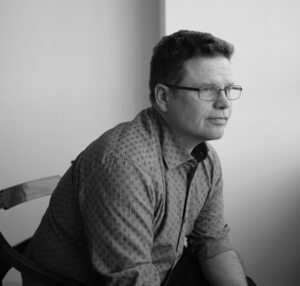
Steve Hearsum, an experienced consultant, supervisor and developer of change practitioners, asks the question “How comfortable are you with being wrong?”
Not in a ‘well-you-will-learn-in-time-I-was actually-right’ code apology way, more an all-embracing acceptance of your fallibility. In her book Being Wrong (2011), Kathryn Schulz comments that “a whole lot of us go through life assuming that we are basically right, basically all the time, about basically everything … As absurd as it sounds when we stop to think about it, our steady state seems to be one of unconsciously assuming that we are very close to omniscient.”
But what happens when we discover we do not have all the answers? What do you do as a leader? Is your response to admit you don’t know, or that your mind has been blown by the question? Or is your tendency to evade, conceal, and generally try and defend against the possibility you are not the font of all knowledge? Is the potential embarrassment at the possibility you are not an all-knowing leader palpable?
A little bit of narcissism is not a bad thing
The truth is, confidence – being sure enough – is not a bad thing, and neither is narcissism in its healthy form, in fact we need it to function. It is what allows us to accept admiration, for example. The challenge is that modern organisations typically ramp up patterns of shame and anxiety underpinned by a fear of not being ‘good enough’, which in turn will be amplified by a self-narrative and the projections of others. The result? Idealised and self-images or ‘ego ideals’ with which they identify.
What happens when these are challenged is the issue, because if they are not found to be entirely true it may reveal just how insecure and lacking in confidence leaders really are. When faced with complex challenges e.g. culture issues, ethics violations, technologically driven change (AI, digitalisation etc.), or external events such as COVID, and when the ‘solution’ or strategy they have been instrumental in developing/selecting does not work, leaders can embark on a cycle of denial rooted in the need to defend their reputation and decision-making.
This is human stuff
This is all profoundly human stuff and talks to an aspect of human behaviour that is as real in school playgrounds as it is in the boardroom. When Allan Katcher, an American psychologist, asked senior executives what they would ‘least want their subordinates to know about them’, in nineteen out of twenty cases they ‘feared that their subordinates would learn how inadequate they felt in their jobs’ (Micklethwaite & Wooldridge, 1997). Are we really surprised therefore that leaders feel the need to reinforce their self-image, often by shoring up a narrative of them as clever, knowing, powerful, competent, certain, assertive etc.?
The Charade of Certainty and Control
During my research, I’ve found that the need for certainty is driven by many things. Core to it is the expectation we place on leaders as well as the expectation they place on themselves, plus a heady mix of the need to please others, stress, cognitive overload and more. The key is born of not knowing: that can be simply not knowing what to do next, whether there is even anything that can be done, the consequences of not ‘fixing the problem’, and, crucially, of what will happen if the narrative that you have cultivated about yourself (or equally of the organisation or team you lead) is discovered to not be true in some way or another.
This anxiety – the fear of not knowing – is a key driver in a thriving market for what I call organisational Silver Bullets (fads, quick fixes, or over-simplified solutions for complex business problems). Consultants with fancy presentations, leadership development programmes offered by business schools promising to make you a ‘great’ leader, gurus and thought leaders – all are pedlars of certainty.
They are however the organisational equivalent of junk-food: they may satisfy your hunger for a short time but will leave you unsatiated in the long run and, over time, eventually damage your health. In much the same way that fast-food outlets claim a juicy cheeseburger is what you need, so too does a Silver Bullet solution fail to deliver on its false promise – in this case, easing the anguish of the leader who does not know what to do.
Why does this matter?
The dominant narratives around what it means to be a leader and ‘do’ leadership cut against the idea that getting more comfortable with not knowing is important, for all the talk of VUCA contexts. The shame and anxiety that can lurk within leadership is off limits and undiscussable.
Much ‘thought leadership’ on executive leadership focuses on external factors, surface-level things like confidence, communication and trust. It is easy to read a briefing on the latest trends, but another matter to translate that into the deep learning and behaviour change that it actually requires.
What is required for leaders is encouragement and support to think more deeply about how things really are, how they really feel, what it really means if there is no clear solution to a complex problem. To truly wrestle with not knowing, I recommend leaders start with the following four things:
- Cultivate reflexivity – the ability to notice your own beliefs, judgments and practices and what influences these (e.g. social, psychological, and systemic factors)
- Develop a both/and mindset – in the face of others asking for either/or, yes/no, or stop/start binary responses, get comfy with not knowing. This requires the ability to see and hold nuanced positions.
- Ask questions – being in the unknown is a requirement. This is where leaders must sense and respond and is not a place for heroic leadership.
- Experiment – that means being prepared to fail and learn. To expect to be right and succeed as a default is an absurdity.
The above steps require leaders to exercise greater self-compassion alongside courageous humility. No one will ever know everything and to pretend otherwise creates unnecessary pressure, making it more difficult for others to help you. Ultimately, it is a denial of reality.
Steve Hearsum is an experienced consultant, supervisor and developer of change practitioners, the founder of Edge + Stretch and the author of No Silver Bullet: Bursting the bubble of the organisational quick fix (out now).

